Introducing Cibiz N2Natural Nutrition
Cold Pressed Organic Sesame Oil
- >Extracted using Wooden Mortar and Pestle
- >Also called as Mara-Chekku Nallennai (in Tamil)


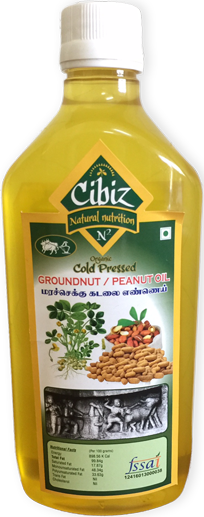
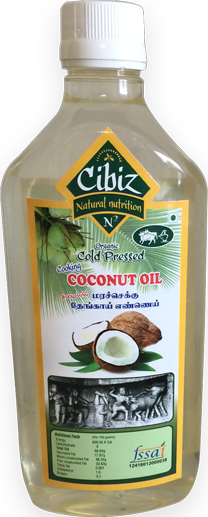
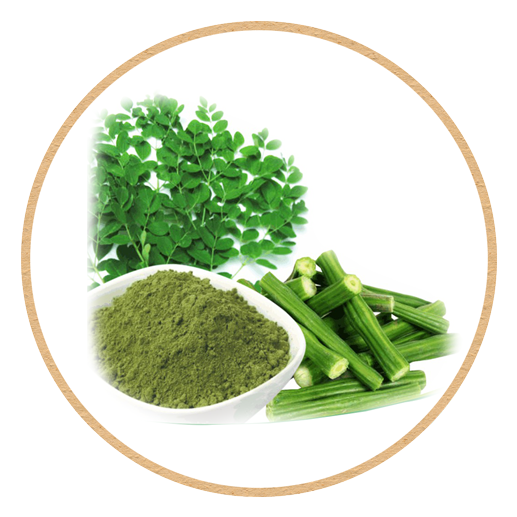
This powder is abundant with vitamins, minerals complete amino-acids and dietary fibre.
Benefits:
Usage:
Oil extraction processes have evolved over the last thousands of years, to enhance output, yield and appearance.
Refined oil that you commonly use as cooking medium in today is extracted under higher temperatures.
This degrades its flavour, nutritional value, and colour. Refining, introduces harmful Trans-fats in an attempt to improve shelf life for commercial reasons.
In the process, the natural properties and benefits provided have been traded off and the oil also loses several beneficial ingredients.
Cibiz N2 Natural Nutrition in its Mara chekku (Ghani) process, the animal movement is replaced by electro mechanical power transmission with a regulated speed control to yield natural or virgin sesame oil with all its properties intact.
Being an end to end natural extraction process, there is no use of any refining bleaching, or deodorizing agent. The oil thus retains its original unique aroma, rich flavour & colour and all its nutritional value all needed for good health.
It is suited for Natural Nutrition.
Cooking oil manufacture involves, grinding the seeds, pressing, and extruding the oil from them. In extracting, a volatile hydrocarbon such as hexane is used as a solvent. Ninety percent of the solvent remaining in the extracted oil simply evaporates, and, the rest is retrieved with the use of a stripping column. The oil is boiled by steam, and the lighter hexane floats upward. As it condenses, it is collected.
After extracting, the oil is refined, to remove color, odour. Refining consists of heating the oil to between 107 and 188 degrees Fahrenheit and mixing an alkaline substance such as sodium hydroxide or sodium carbonate with it. Soap forms from the fatty acids and the alkaline additive, and it is usually removed by centrifuge. The oil is further washed to remove traces of soap and then dried. Further washing and refining follows, and then the oil is filtered and/or distilled.
Oils are also degummed at this time by treating them with water heated to between 188 and 206 degrees Fahrenheit, steam, or water with acid. The gums, most of which are phosphatides, precipitate out, and the dregs are removed by centrifuge.
Oil that will be heated (for use in cooking) is then bleached by filtering it through fuller's earth, activated carbon, or activated clays that absorb certain pigmented material from the oil.
Finally, the oil is deodorized. In this process, steam is passed over hot oil in a vacuum at between 440 and 485 degrees Fahrenheit , thus allowing the volatile taste and odour components to distil from the oil. Typically, citric acid at .01 percent is also added to oil after deodorization to inactivate trace metals that might promote oxidation within the oil and hence shorten its shelf-life.
It is then ready for packaging.
The cold processed oil extraction has not been defined. Traditional extraction using wooden mortars & pestle were not in practice in North America & Europe, where seeds were roasted and beaten into a paste before being boiled in water; the oil that rose to the surface was then skimmed off.
Over time, extracting vegetable oils has become more and more efficient. Extraction through expellers operate on a mechanical press principle within the room temperature (40-70 Fahrenheit) were called as cold pressed.
India is using the same technology for oil extraction now. Being a tropical country, the temperature is ranging between 80-120 Fahrenheit. The expellers with its iron parts further raises its temperature due to frictions and the extraction is done in a temperature around 180-220 Fahrenheit. So, calling this extraction as cold pressed, is a misnomer.
Cibiz N2 Natural Nutrition Cold Pressed Sesame Oil is extracted following a rich heritage cold process that originated thousands of years from India, by using wooden mortar and pestle (Maram chekku/Khacha Ghani), an all natural way to extract oil retaining all its nutrition.
Oil is cold-pressed in small batches at controlled low temperatures such that it is more resistant to heat than any other oil. The extraction is then slightly filtered to remove sediments, before being bottled.
Being an end to end natural extraction process, there is no use of any refining, bleaching, or deodorizing agent.
The oil thus retains its original unique aroma, rich flavour & colour and all its nutritional value viz antioxidants, magnesium, copper, calcium, iron, zinc, and vitamin B6, phytosterols, chlorophyll; lecithin etc, all needed for good health.
It helps to bring down blood pressure and level of cholesterol.
Helps to keep the body active by flushing out toxins and keeping skin healthy.
Helps in oral hygiene through Oil pulling by strengthening jaws and stopping bleeding of gums.
There is now sufficient awareness that it is inane to substitute sesame oil with improved olive oil in Indian recipes and compromise on the taste of the food.
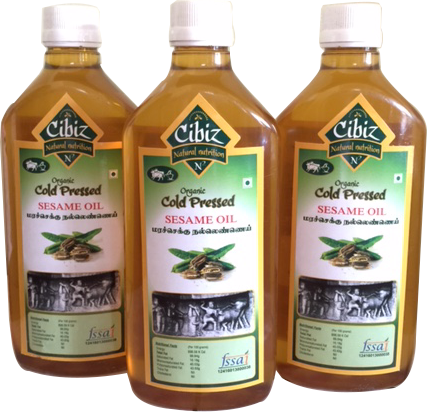
The high viscosity of this oil helps it to penetrate deep into the skin and nourishes it from within.
Improves good monounsaturated and polyunsaturated fats in blood.
Infused with anti-bacterial and anti-inflammatory properties, this oil speeds up curing skin conditions like psoriasis and eczema.
Several Indians are now waking up to age-old methods of oil extraction especially after the olive oil lobby began trumpeting terms such as cold-pressed’ and ‘extra virgin.




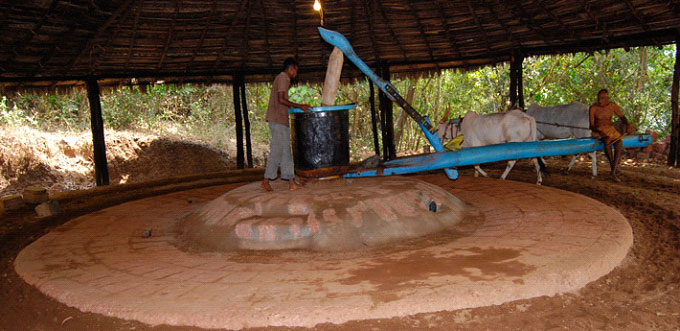






We are a team of successful businessmen who are motivated to resurrect the traditional rural technologies.
Mara Chekku Nalla ennai is our first target for all the reasons outlined above and more.
We would faciliate several rural youth to turn into successful entrepreneurs and re-establish the pride of our maram chekku nalla ennai.
Manufactured from:
6 - 121/1, Karuppambulam village Vedaraniyam Taluk - 614707, Nagapattinam District, TamilNadu
+91-7305803130
Marketed by:
#15/3, Halls Road, Kilpauk, Chennai - 600001. Tamil Nadu
+91-9952931343